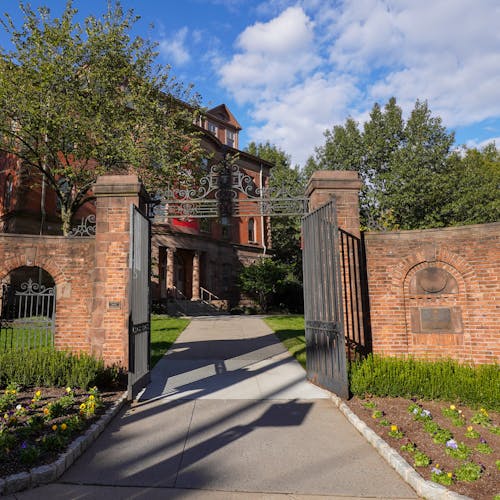UZUMCU: Marking Muslims as ‘foreign’ is impossible

A new ban akin to last month’s Muslim ban restricts passengers from bringing laptops, iPads or any device larger than a cell phone in a carry-on if flying to a list of the 10 airports in eight Muslim-majority nations. The list restricts laptops in carry-ons if traveling to airports in Cairo, Istanbul, Amman, Abu Dhabi, Dubai, Riyadh, Jeddah, Kuwait City, Casablanca and Doha. Devices larger than cell phones can only be brought onto a plane in check-in bags, leading many to fear that the new order may cause greater harm in the case of a lithium battery catching on fire. The prospects of putting a fire out in the check-in luggage compartment put flights at greater risk. Yet there the administration has reason to believe that the laptop ban provides a necessary security measure in light of intelligence on the Islamic State group's plan in developing a bomb that can be stored in laptop batteries. Airlines have been given notice to comply before the end of this week. Both the United States and Great Britain are set on implementing the restriction, which would also apply to British airlines.
Immediately, many have expressed concerns that for the kind of inconvenience and even harm the restriction brings along with it. From creating a hassle for journalists, academics and businessmen, who usually use the long flights to prepare for work or conferences to the concern raised by Ahmet Arslan, the Turkish Transport, Maritime and Communication minister, the ban could out of fear or inconvenience reduce the number of people who book flights to many of these international airports and destinations.
Arslan’s concern outlines a trend of United States policies that are not merely isolationist but articulate a growing rift between the West and the “Muslim world” from which they want to enforce a division. Through terror rhetoric, anti-immigration laws, anti-refugee deals and now travel bans, the desire to enforce this separation legally, politically and economically is apparent more than ever. The mapping imagined by Western nations demarcates a clear source of violence that opposes the free world and exists abroad. There is an unquestioned assumption that the Islamic State terrorists are bred in unstable corners of the world in Syria or Iraq rather than right here at home in the United States or Europe, which exports terrorism in the form of Islamic State fighters. In 2015, United States intelligence officials believed more than 150 American citizens have traveled to Syria as foreign fighters. Two years later, the number is assumed to be higher. Indeed articulating a geopolitical border between the United States and Muslim-majority countries does little to provide an effective solution in addressing terrorism when its roots exist in the country and are fed on rampant Islamophobia and terrorist rhetoric.
The rift forming between Europe and the Middle East takes the forms of colorful anti-refugee policies like the EU-Turkey refugee deal. Turkey’s role in policing its strategic border between Europe and the Middle East has positioned the president of Turkey, Recep Tayyip Erdogan, as the enforcer of the flood gates that hold back any additional Syrian refugees from entering Greece. In the name of security, borders have been strengthened to prevent the inclusion of "undesirables" without really addressing violence at all. In fact, the measures to build a wall or ban refugees will only result in increased violence as death tolls and unemployment rates rise among those already in precarious situations. Ironically the security measures laid out only cause heightened insecurity in safety within and among nations. The emphasis on border protection is a violent process, one that galvanizes its support through categorizing people along exclusionary lines.
The imaginary border that intends to make the United States and Europe more secure cannot ensure such a reality through violent means. In the series of restrictive border enforcement policies, violence is a means to an end in itself. Thus it does not produce greater security but more violence, ensuring only the possibility for insecurity. Most importantly, it is necessary to emphasize the use of imagination in defining the border. I do not mean to say that it is not apparent or arbitrary. The border breeds chaos because it defines Muslims within a static and unchanging corner of the world. Muslims do not only exist abroad. Muslims are not foreign to the United States. Muslims have been in the United States since the first slave ships arrived from West Africa. Demarcating Muslims as foreign and easily separable like water and oil from a United States future is an impossibility. Attempted maps out a particular fantasy of the world which outlines a dark trajectory. Islam had already defined human civilizations for centuries prior to even the first inkling of a western-style liberal democracy. No ban can ever successfully separate a Muslim reality out of a state’s history without turning its projected violence onto itself.
Meryem Uzumcu is a School of Arts and Sciences senior majoring in planning and public policy, Middle Eastern studies and women’s and gender studies. Her column, “Fahrenheit 250,” runs on alternate Tuesdays.
YOUR VOICE | The Daily Targum welcomes submissions from all readers. Due to space limitations in our print newspaper, letters to the editor must not exceed 500 words. Guest columns and commentaries must be between 700 and 850 words. All authors must include their name, phone number, class year and college affiliation or department to be considered for publication. Please submit via email to [email protected] by 4 p.m. to be considered for the following day’s publication. Columns, cartoons and letters do not necessarily reflect the views of the Targum Publishing Company or its staff.



